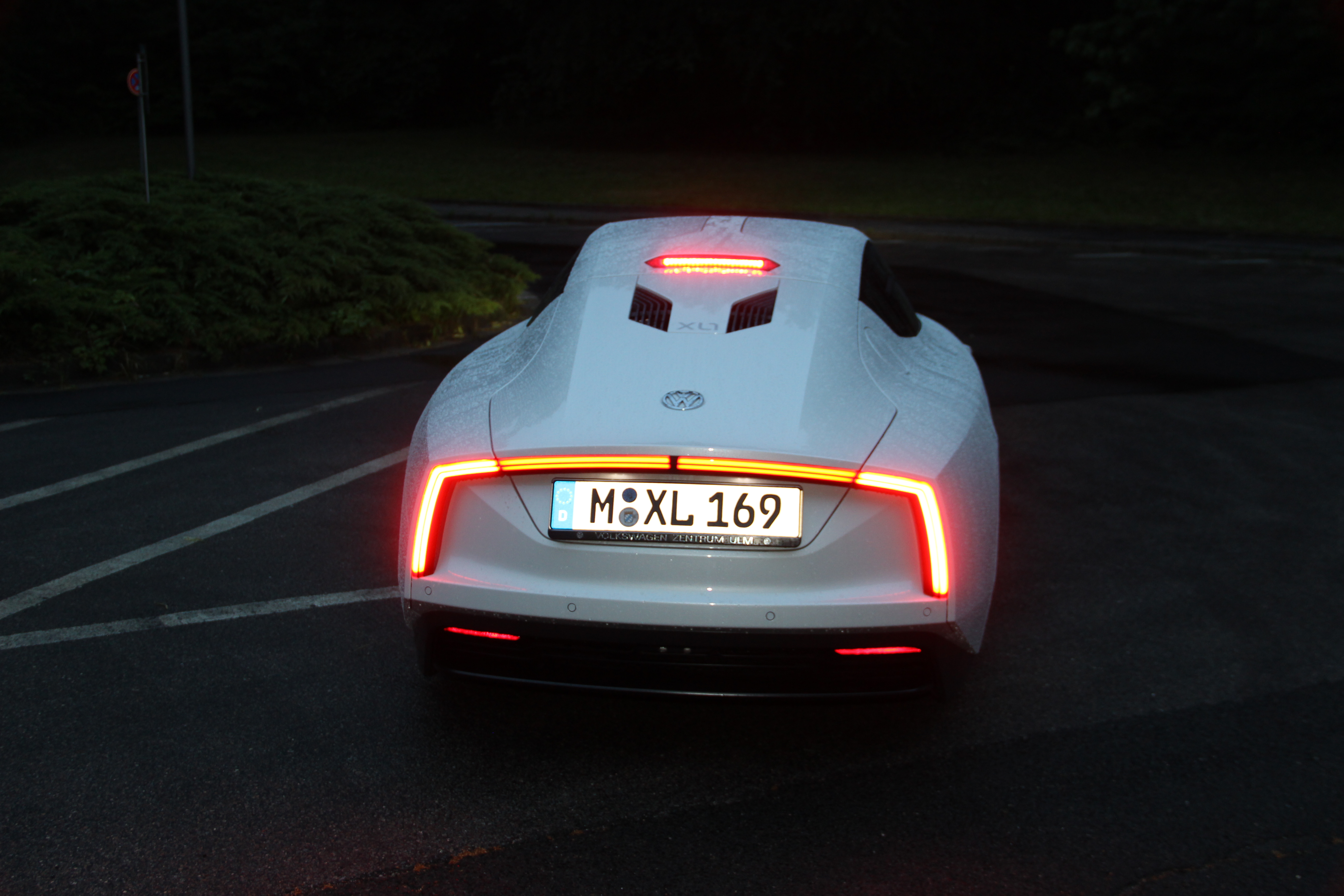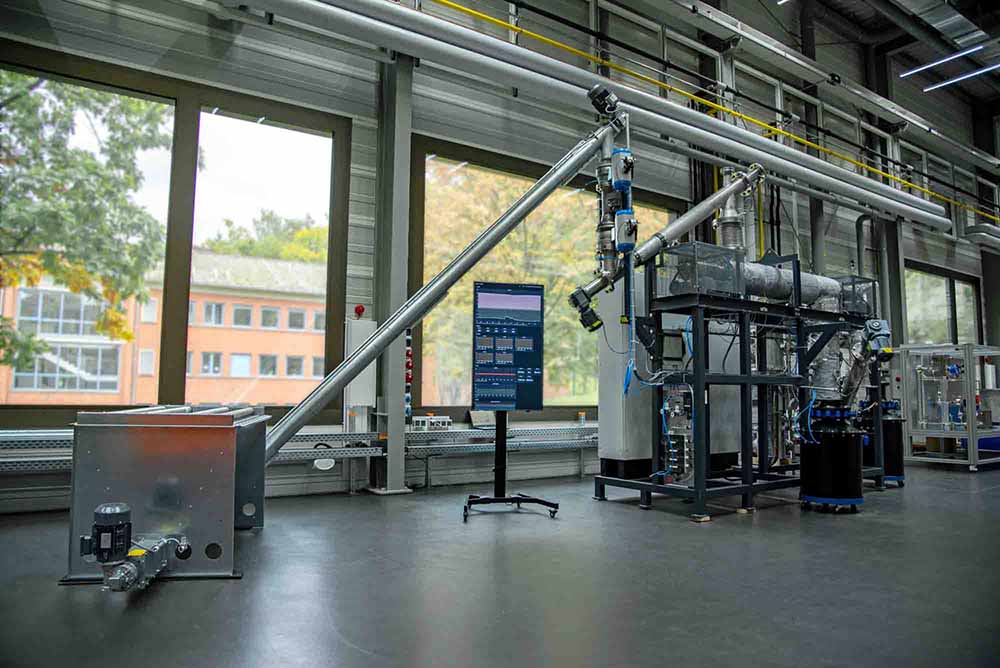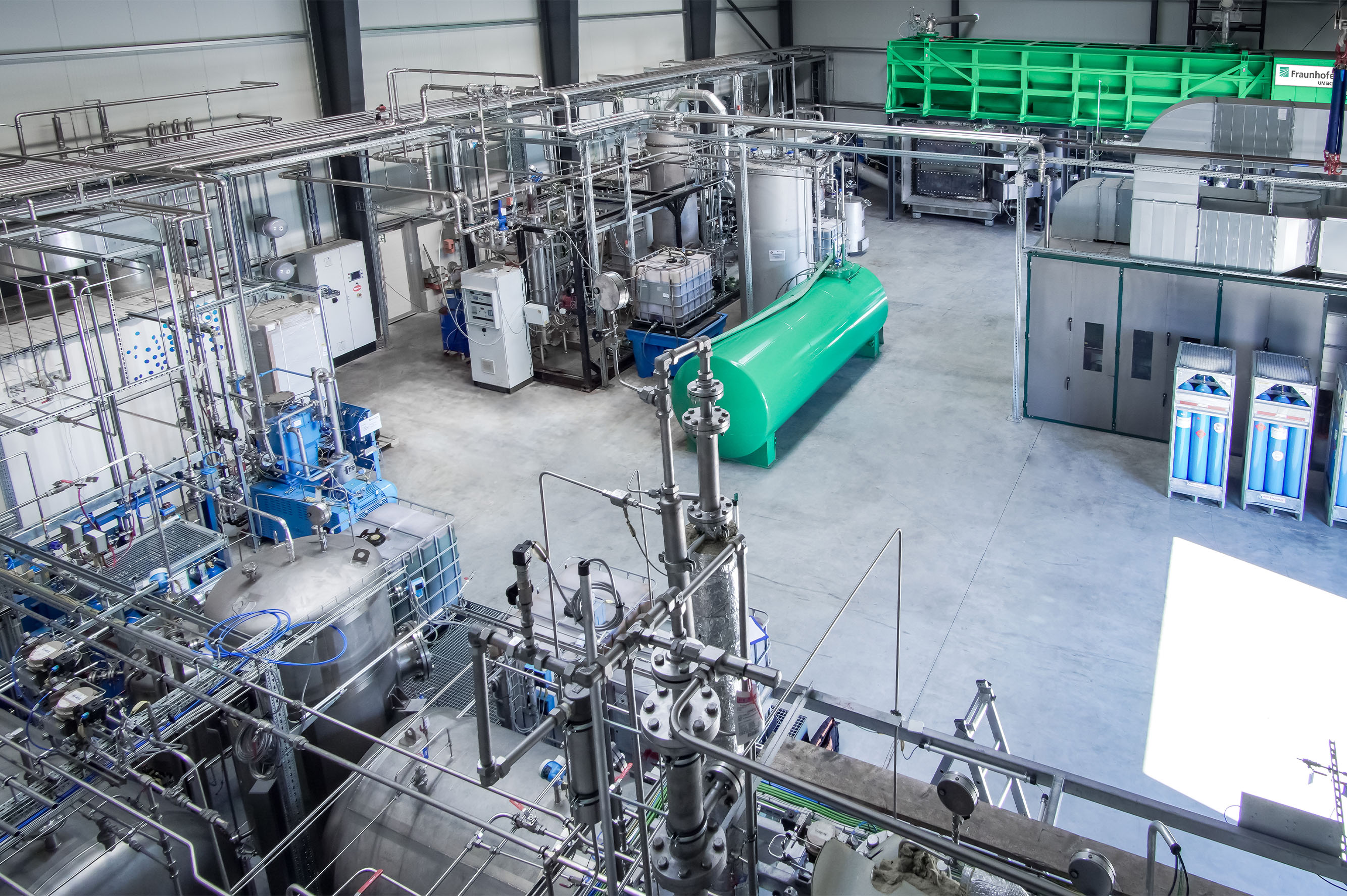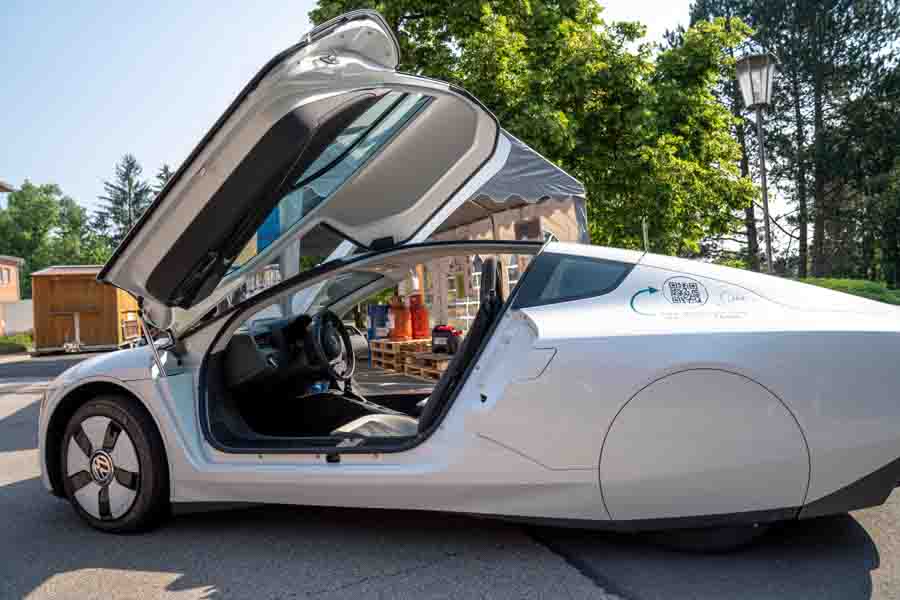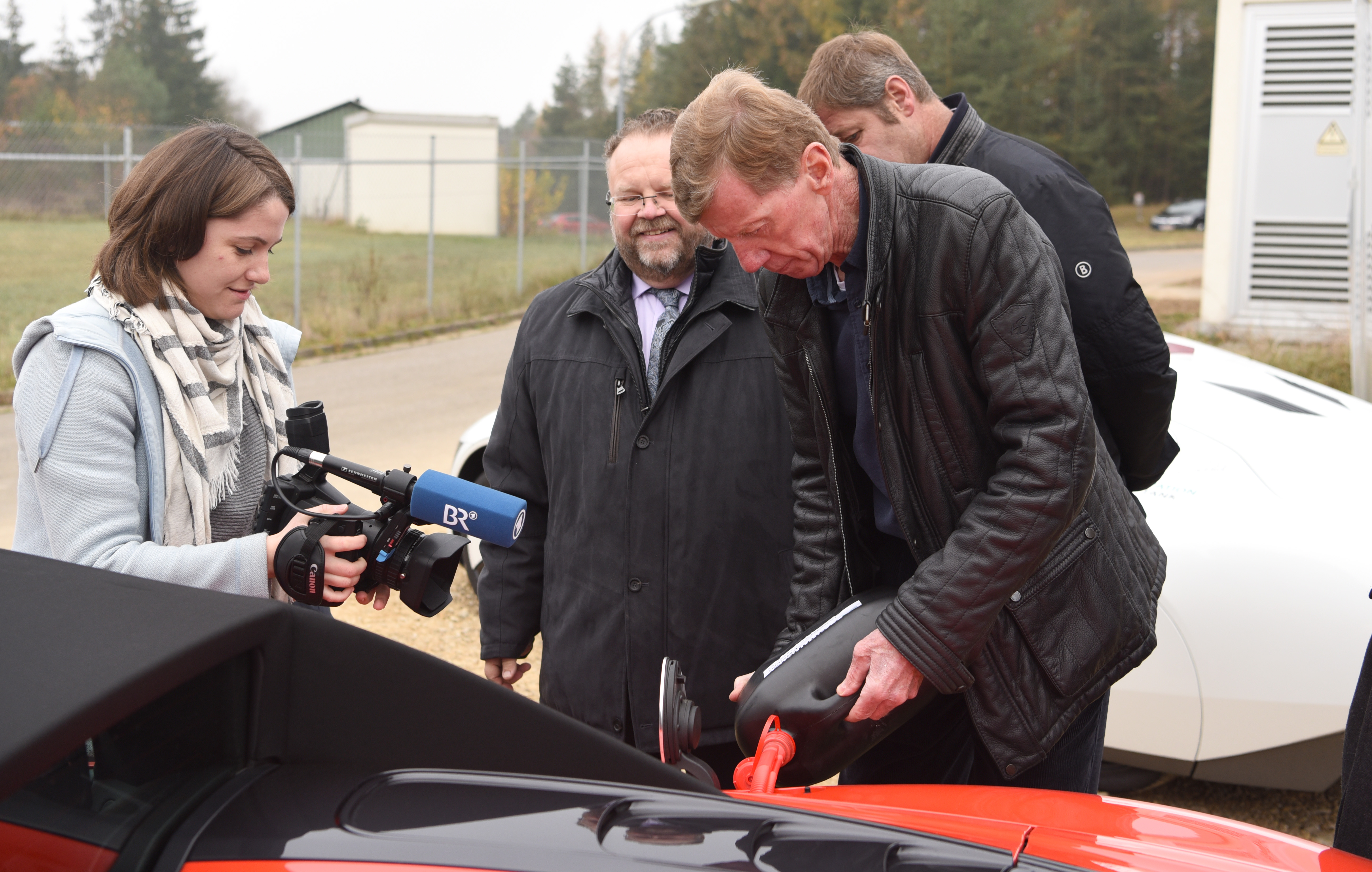
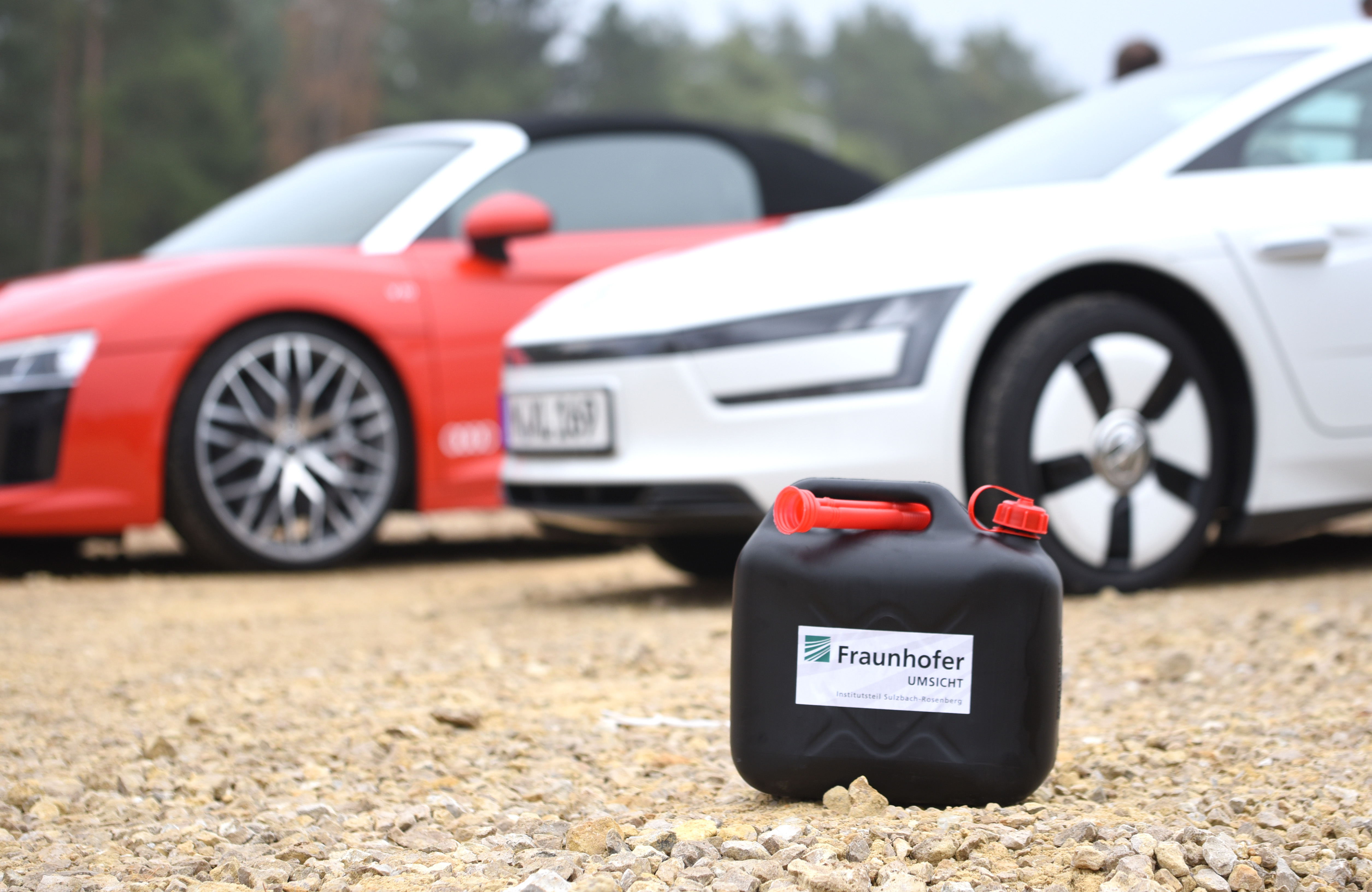
Within the framework of various projects, Fraunhofer UMSICHT is developing processes for the production of »synthetic fuels« with the quality of standard fuels from currently available raw and residual material sources.
This research field is based on the fact that combustion engines will continue to make a significant contribution to our mobility despite emissions and increasing electromobility. Although automobile manufacturers have announced specific targets for phasing out combustion technology, it is uncertain to what extent and within what timeframe these targets can be implemented in the market.
CO2 reduction with combustion engines
It also needs to be clarified how the remaining combustion engines will be integrated into a concept for CO2 reduction. Forecasts for 2030 assume that - with a stock of 10 to 13 million electric cars - more than 70 percent of vehicles will still be equipped with combustion engines. In addition, there will be heavy-duty and long-distance traffic as well as aviation and shipping - areas that will be hardly or only partially electrified in the foreseeable future.
Sustainable synthetic fuels with minimal CO2 footprint
In order to achieve a significant reduction in CO2 emissions in the areas mentioned, liquid fuels with a high energy density must be produced sustainably. In the short and medium term, preference should be given to »mature« technologies and existing, sustainable raw materials (e.g. biogenic residual and waste materials).
On the part of the legislator, there is additional pressure to act with regard to the revision of the Renewable Energies Directive (RED II), as a quota of progressive liquid fuels of 3.5 percent is aimed for by 2030. Market-ready, short-term solutions with a relevant impact on GHG emissions can now be realized with biofuels alone.
